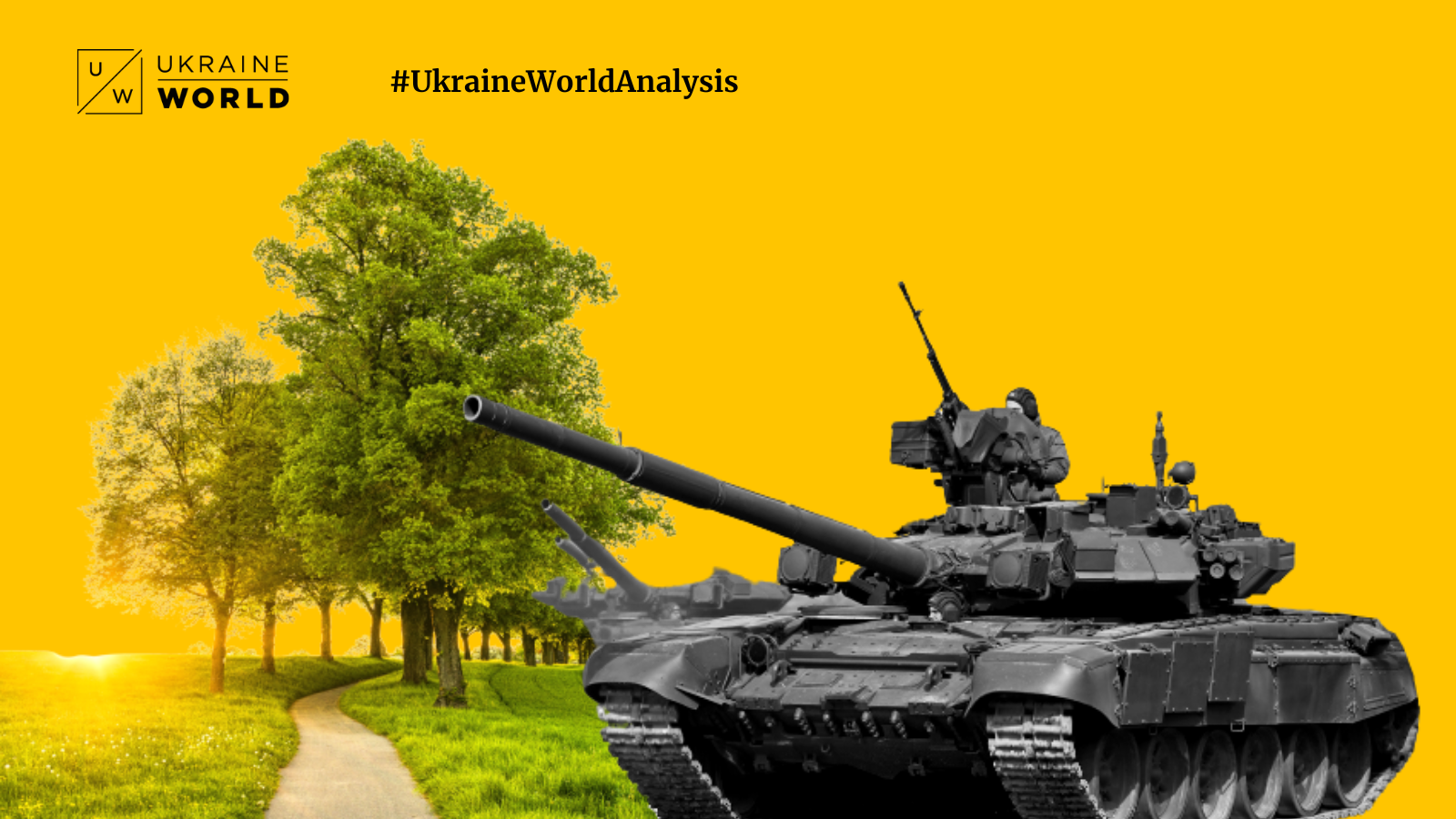Yevheniia Zasiadko told us about the impact of war on the ecology of Ukraine.
Half a year of Russia’s full-scale invasion of Ukraine has caused huge damage to the Ukrainian environment. Yevheniia Zasiadko, the Head of Climate Department at the Ecoaction Center for Environmental Initiatives told us about the impact of war on the ecology of Ukraine.
Key points - in our brief, #UkraineWorldAnalysis
1. On the concept of ecocide and Russian actions which qualify:
- The notion of ecocide is established in Ukrainian legislation. In broad terms, ecocide is the mass destruction of flora and fauna, poisoning of natural sources (such as air, water resources, and soil), and commiting of other actions that can cause ecological disaster.
- Almost everything Russia has done as part of its aggression has caused adverse effects on the environment, from the mining of land to constant shelling with shells, bombs, and missiles.
- Combat action causes fires. It has taken place in forests and national parks (such as Kinburn Spit and the Chornobyl forest). During the occupation of the Chornobyl Exclusion Zone, firefighters didn’t have access to the area because of the intensity of military actions. Fires always lead to destruction of ecosystems. We are losing endangered species in the protected areas.
- Damage to infrastructure, including attacks on industrial facilities like factories, damage to sewer facilities, the destruction of pipelines, the flooding of coal mines, and other such acts cause air, soil, and water contamination. Now we have 253 documented cases of such damage.
- The flooding of coal mines is a particular threat, as it causes the contamination of groundwater, especially with heavy metals. There is no access to the occupied territories, and such incidents have been happening in Donetsk and Luhansk regions since 2014, but we know for sure about the flooding of the Zolote, Toshkivska, Girska, Karbonit coal mines since February, because of occupation and the destruction of the electrical network.
- Mykolaiv and Kharkiv regions lead in the number of documented incidents negatively impacting the environment. But there are territories under Russian occupation, so we cannot fully assess the situation. In total, Ecoaction has observed 453 incidents.
2. On regional and global consequences:
- The biggest threats to the environment are on the national level. However, negative impacts on the marine ecosystem in Black Sea caused by sea mines, the sinking of ships, and the use of radar equipment by Russians would affect the Black Sea littoral states of Turkey, Georgia, Bulgaria, and Romania . The mass die-off of dolphins already points to a disaster.
- The global danger is connected to nuclear threats. Events at the Zaporizhzhia NPP, fires and the occupation of the Chornobyl Exclusion Zone, and missiles flying above the South Ukrainian NPP cause great concern. If any big incident happens at the Zaporizhzhia NPP, the resulting radiation pollution could affect not only Ukraine, but European countries, as well. It could be akin to a second Chornobyl disaster, and also affect the Black and, consequently, Mediterranean Seas.
- On August 25, the Zaporizhzhia NPP was completely disconnected from the Ukrainian power grid – for the first time in the plant’s history. Due to fires at the Zaporizhzhya TPP ash dumps, located next to the Zaporizhzhya NPP, the last (fourth) transmission line connecting the ZNPP with the power system of Ukraine was cut-off twice. Three other transmission lines were damaged earlier during Russian shelling.
3. On gathering evidence of Russian crimes against the environment and its importance
- NGOs like Ecoaction are currently monitoring the situation, following open sources, and publishing information so that people know what is going on.
- Legal activities regarding the crimes are held by the Ministry of Environment and Natural Resources. It is attempting to assess the damage and count how much money may be needed for restoration that Russia should be required to pay .
- There are so many documented cases of crimes that it is impossible to go to court with each case separately. That is why the Ministry is focused on working out a methodology of damage assessment that will meet international approval. With this international methodology, we can appeal to courts.
4. On post-war environment restoration:
- It will be impossible to restore some areas. For instance, in France, after WWII, there are still closed-off areas where it is impossible to conduct, since they are still contaminated. We will have a similar situation. There will be many such areas which are unfit for human use or habitation.
- Currently, it is impossible to talk about the scope of actions that should be taken for restoration, since access to information will be limited so long as the war continues. However, it is already necessary to create a preliminary basic plan to restore territory and to deal with certain types of cases (such as flooded mines).
5. On mechanisms to hold Russia accountable:
- The Ministry of Environment and Natural Resources can go to international courts like the International Criminal Court or the Court of Justice. The problem is that both courts function under the Rome Statute, which neither Ukraine nor Russia have ratified.
- If Ukraine launches a legal process, it will be a unique example of a country defending its ecological rights against an occupier and demanding full compensation for ecocide from an aggressor.
- The international community is just now starting to pay special attention to the destructive influence of war on the environment. Ukraine is cooperating with relevant international organizations. The world understands the urgency in bringing this problem to the global stage. Ukraine, in this regard, is the source of evidence and information. Thus, we’re drawing global attention to the environmental ramifications of conflicts and how to cope with them.
ANASTASIIA HERASYMCHUK, ANALYST AND JOURNALIST AT UKRAINEWORLD
Yevheniia Zasiadko, the Head of Climate Department at the Ecoaction
This material was prepared with financial support from the International Renaissance Foundation.

